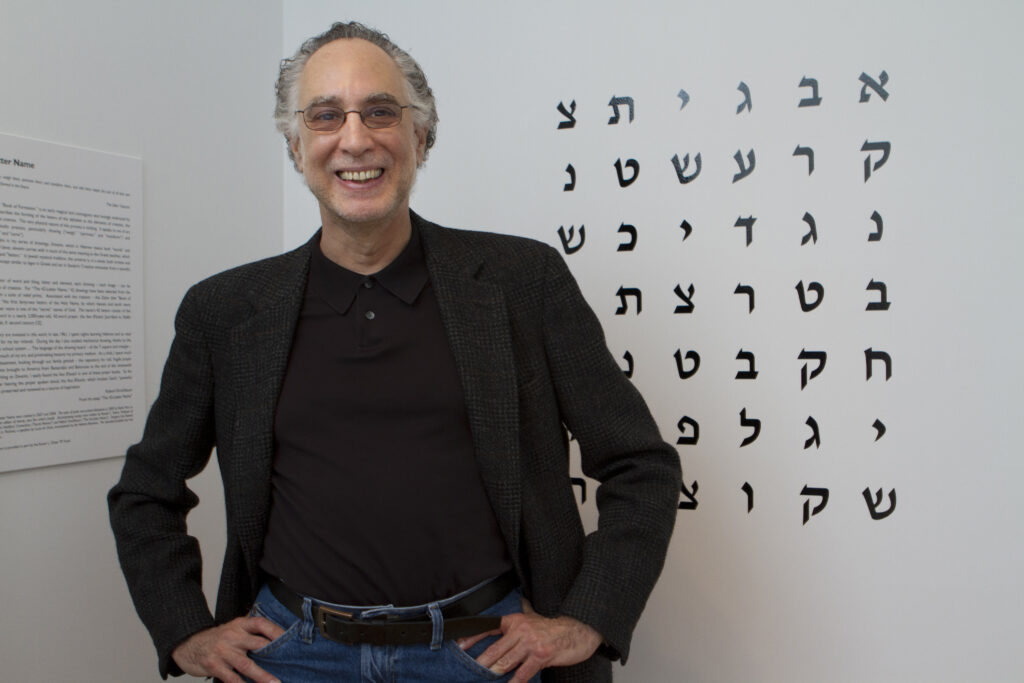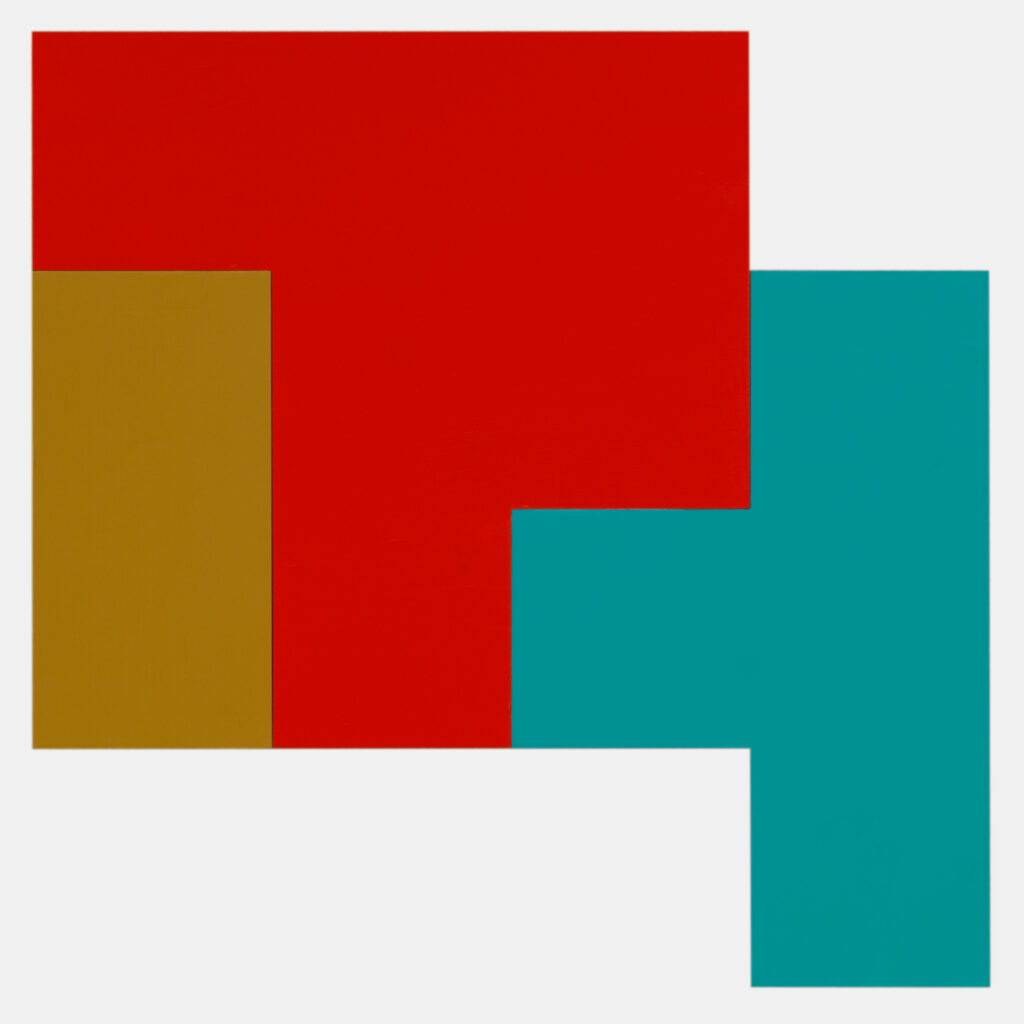Professor to Expand Series of Artworks with Grant from Memorial Foundation for Jewish Culture
Trinity College Professor of Fine Arts Robert Kirschbaum received a fellowship grant from the Memorial Foundation for Jewish Culture (MFJC) for his Ashlar Series: creating intaglio and relief prints, a work of art that will raise issues of identity, spirituality, and abstraction.
The MFJC promotes the global regeneration of Jewish culture by supporting, developing, and connecting scholars, artists, filmmakers, rabbis, and Jewish communal lay leaders and professionals around the world.

“I’m honored to be recognized by a mainstream Jewish organization for my art and my contributions to contemporary Jewish art,” said Kirschbaum.
Kirschbaum’s ongoing creative endeavor, the Ashlar Series, consists of a group of paintings that he plans to expand with the purchase of materials and services to create a group of intaglio and relief prints.
“The works that constitute Ashlar Series evoke masonry—an ashlar is a rectangular block of hewn stone—formed from interlocking shaped panels, each ‘cut’ from a nine-square grid: the universal symbol of sacred space and the basis for the Prophet Ezekiel’s Temple vision described in the Hebrew bible,” Kirschbaum said. “These works are inspired by ancient Jewish art, in particular the ancient wall mural image of Solomon’s Temple found in the ruins of the Roman-era synagogue at Dura Europos and my own experience encountering the massive ashlar blocks of the Kotel—the Western Wall of the Temple Mount in Jerusalem—for the first time.”
Kirschbaum is part of a group of artists who are attempting to communicate Jewish content while working within the parameters of contemporary art. “We are redefining the term ‘Jewish art,’ once used as a pejorative, by asserting our identity through our ideas,” he said. “We are part of a larger attempt by contemporary artists to utilize their heritage as subject and as a source, to draw connections in their art between their heritage and the heritage of others, and to use their art to muster a spiritual response to the anxieties that surround the beginning of the millennium.”

With support from this one-year fellowship grant, Kirschbaum plans to create a folio of between nine and a dozen prints based on the Ashlar forms. “I am confident that creating prints in the Ashlar Series will allow for these images to reach an expanded audience,” he said. “The trajectory of exhibitions in museums, university art galleries, and alternative spaces exhibiting my work will continue, as will the critical response in both the press and scholarly journals here and abroad, thereby adding my contribution to the ongoing dialectic between sacred and secular in contemporary art.”
While no Trinity students are directly involved in this personal project, Kirschbaum said that, as a teacher of studio art, his work has always been connected to my teaching. “Not only has my studio practice led me to a myriad of ideas that I can convey to my students, it has clarified the process that we artists use in sustaining the creation of a body of work over time,” he said. “This is the goal of studio education—the process of becoming an artist.”
Throughout his career, Kirschbaum has received numerous grants and awards, including a Fulbright Senior Scholar Award for Research in India and an Artist’s Fellowship from the New York Foundation for the Arts. He has exhibited and lectured throughout the United States and abroad. Kirschbaum’s artwork is in permanent collections, including the Albright Knox Art Gallery, New Britain Museum of American Art, Yale University Art Gallery, and the Pennell Print Collection of the Library of Congress in Washington, D.C.; and is currently on exhibit at ANU – Museum of the Jewish People in Tel Aviv.
Kirschbaum’s art also can be seen on the Trinity College campus. Three large etchings—Squaring the Mount, #’s 2, 3, & 4—are hanging in the stairwell of the Zachs Hillel House, and his print folio, The 42-Letter Name, can be viewed in the Watkinson Library collection.
